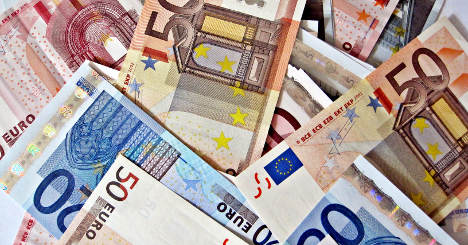France on Wednesday announced "unprecedented" cuts in its next budget, admitting it will not meet its EU-mandated deficit target this year and that the economy will do worse than previously expected
in 2014.
Despite emerging from a shallow recession in the second quarter, France is struggling to get its tepid economy back on track amid record-high unemployment, limited investment and low consumer spending.
Jean-Marc Ayrault revealed on Wednesday that France is to make €15billion worth of savings to try to reduce its crippling public deficit.
Speaking to the press Ayrault said the amount was “unprecedented”.
The draft budget is set to be presented to the cabinet on September 25.
According to French newspaper Le Monde on Tuesday €9 billion worth of cuts will be made to government spending at a regional and national level and a further €6 billion will be saved by cuts to the country’s welfare system.
“In this budget €15 billion worth of savings are to be made,” Ayrault said. “This is an unprecedented effort but at the same time we will save our social model.”
Ayrault said there would be no rise in VAT other than that already planned in order to boost the purchasing power of households.
Another 3 billion euros will be raised through increased taxes, Budget Minister Bernard Cazeneuve said, as government officials unveiled the broad outlines of next year's public finances.
The Socialists had previously floated the idea of 6 billion euros in new taxes, but Finance Minister Pierre Moscovici said there would be no increases in employer payroll or household tax contributions.
Government spokeswoman Najat Vallaud-Belkacem said the focus was on spending cuts over tax increases in order to "ensure competitiveness and allow domestic demand to take off again."
Economists say France's high labour costs are making it less competitive in the global economy and consumer spending has fallen in recent years amid the wider eurozone economic crisis.
Finance Minister Pierre Moscovici also said on Wednesday that France's 2013 public deficit will come in at 4.1 percent of GDP, which ishigher than the 3.9 percent agreed with the European Union.
Moscovici said the 2014 deficit will come in at 3.6 percent and that France plans to push it back under the EU ceiling of 3.0 percent of GDP in 2015, which is the agreed deadline with Brussels.
In May, the European Commission gave France an additional two years to bring its public deficit back under the EU ceiling.
It said France should cut the public deficit from 4.8 percent of GDP in 2012 to 3.9 percent in 2013, then 3.6 percent in 2014 and 2.8 percent in 2015.
"The pace of deficit reduction is not going as quickly as we'd like," Cazeneuve said, adding this was "essentially" the result of the "European and international context".
The full budget is to be presented to the cabinet on September 25 before being put to a parliamentary vote.With 80 percent of savings next year coming from cuts, Moscovici described the budget as "courageous and reformist".
"This is an aggressive and fair budget that supports growth today and prepares for the growth of tomorrow," Moscovici said.
The budget includes increases in the value-added tax and cuts in several types of tax breaks, including for health insurance contributions and assistance with paying for school and university fees.
The main opposition right-wing UMP said the cuts in tax breaks were in effect tax hikes and would have a significant impact on household spending power.



 Please whitelist us to continue reading.
Please whitelist us to continue reading.
Member comments